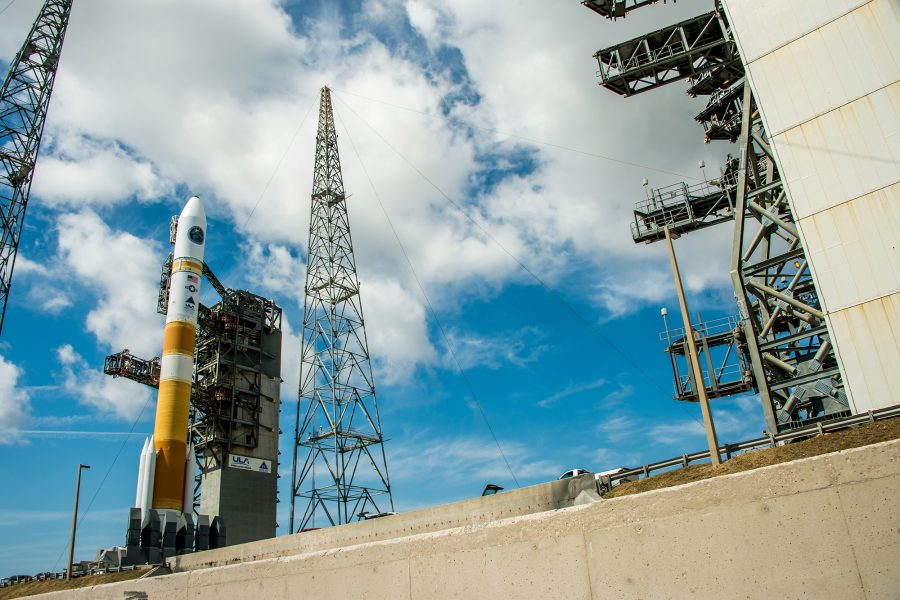Congressional authorizers have agreed to reform how the Pentagon develops and buys space systems, including adding a counterpart to Air Force acquisition boss Will Roper.
In the bipartisan, bicameral agreement on the fiscal 2020 defense policy bill released Dec. 9 and approved by the House on Dec. 11, lawmakers included a provision to create a new acquisition council within the Space Force, which itself would be part of the Air Force.
That council would be chaired by an assistant Air Force secretary for space acquisition and integration, formerly the principal secretary of the Air Force for space. It would also include the under secretary of the Air Force, an assistant defense secretary for space policy, the National Reconnaissance Office director, the Space Force’s chief of space operations, and the head of US Space Command.
Together, the council would meet at least monthly to ensure that the air and space forces are investing in systems and programs that would work together as an enterprise.
The new assistant Air Force secretary would take over as the top executive responsible for buying and integrating all of the service’s space systems and programs as of Oct. 1, 2022. The presidentially appointed, Senate-confirmed official would advise Roper on those matters, though he has publicly opposed the idea of having a space equivalent.
He has suggested the additional person would create inefficiency in a space acquisition ecosystem that already spans multiple organizations. Hiring a space acquisition boss would split the air and space procurement enterprise as the Air Force is trying to integrate its systems more closely.
That assistant secretary would also oversee the Space Rapid Capabilities Office, Air Force Space and Missile Systems Center, and the Space Development Agency, according to the draft National Defense Authorization Act.
The SDA, which launched in March, says its mission is to oversee those investments across the Pentagon and ensure all stakeholders are pursuing technologies that work together and aren’t redundant. It plans to move under the Space Force in the next few years as part of that space acquisition ecosystem.
Lawmakers also want the Defense Department to partner with a federally funded research and development center to outline what an assistant defense secretary for space policy should do, including whether their office should include areas that currently fall into the military intelligence realm.
